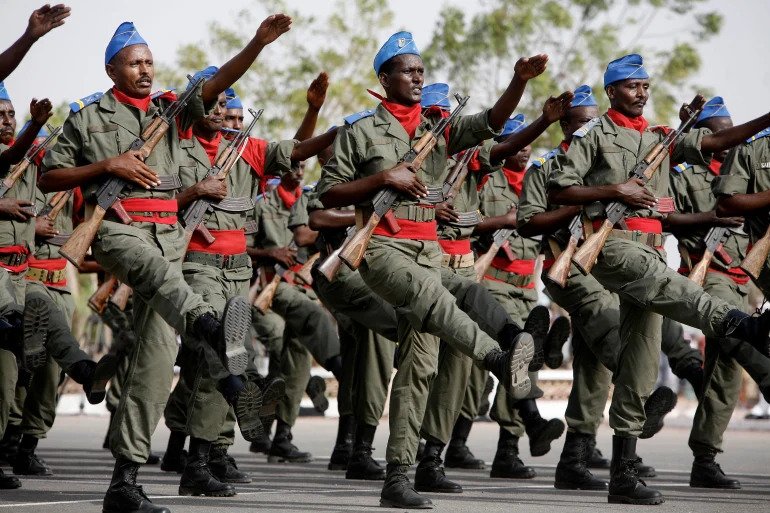Djibouti’s security forces executed a drone strike near the border with Ethiopia on Sunday, resulting in the deaths of eight members of a rebel group identified as the Armed Front for the Restoration of Unity and Democracy (FRUD A), along with an unspecified number of civilian casualties. The Djiboutian defense ministry confirmed the operation, describing it as targeting a “terrorist group” operating in a locality known as Addorta, situated approximately six kilometers from the Ethiopian border.
The defense ministry’s statement noted that the attack was aimed at neutralizing individuals engaged in “hostile actions” that posed a potential threat to Djibouti’s security forces and forward positions. However, the ministry acknowledged the presence of “collateral damage” among Djiboutian civilians, although it refrained from providing further specifics regarding those affected.
Alexis Mohamed, an advisor to President Ismael Omar Guelleh, emphasized that the targeted militants were members of FRUD A, a faction regarded by Djibouti as a terrorist organization. This assertion follows accusations against FRUD for prior hostilities, including an incident in October 2022, where the group was blamed for an attack on military barracks in Garabtisan, north of Djibouti, resulting in the deaths of seven soldiers and the kidnapping of six others.
Reports from Ethiopian sources, including the Addis Standard, indicated that the drone strike may have occurred on Ethiopian territory, a claim that Djibouti officially rejected. Mohamed maintained that the operation was conducted within Djibouti’s borders, underscoring the complexities surrounding territorial claims in the region. As of yet, Ethiopian authorities have not provided a response to inquiries regarding the incident.
The historical context of the FRUD group’s activities reveals a longstanding conflict with roots in ethnic tensions. The group emerged in 1991, primarily representing the interests of the Afar community against the Issas, Djibouti’s other dominant ethnic group. Over time, FRUD has split into factions, with the armed wing continuing to execute attacks despite the parent group’s involvement in a political coalition supporting President Guelleh.
Djibouti’s strategic location at the convergence of two major waterways makes it a critical hub for international military operations, hosting significant military bases from both the United States and France. The recent drone attack highlights ongoing tensions in the region, as Djibouti grapples with threats posed by armed groups while maintaining its strategic and geopolitical interests. The Djiboutian government has announced an investigation into the incident, aiming to clarify the circumstances surrounding the attack and the reported civilian casualties.

















